We eat with our eyes as much as with our sense of smell, touch, and taste. Thus, anytime we can combine bright colors, textures, and aromatics with gratifying flavors, the result seems to multiply the satiating experience. Chef Lisa Giffen crafted this colorful recipe with seasonally available stone fruit, fresh pesto, and pickled sea vegetables, which highlight and bring out the richness of the sushi-grade Seatopia Yellowtail or Kanpachi. Prepared aboard the Seatopia Tiny Galley, Chef Lisa demonstrates how easy beautiful seafood dishes can be as long as we have great ingredients to work with.

Ingredients
Marigold Flower Pesto:
- 2 Cups of Marigold Flower Petals, roughly chopped
- 2 Tablespoons of Lightly Toasted Pine Nuts (can be substituted with sesame seeds, walnuts, pecans, almonds, pistachio, or sunflower seeds)
- 1 Clove of Garlic, finely grated
- 1 ½ Cups of Extra Virgin Olive Oil
- 2 Tablespoons of Capers, roughly chopped
- 1 ½ Teaspoons of Sea Salt
- Zest of 1 Lemon
- Juice of 1 Lemon
Crudo:
- ½ Pound of SEATOPIA Yellowtail Kanpachi
- 1 Santa Rosa Plum (or any ripe, tart plum), thinly sliced
- 3 Tablespoons Marigold Flower Pesto (recipe below)
- Pickled Sea Vegetable (Bull kelp), thinly sliced




Directions:
Marigold Flower Pesto:
- Combine all ingredients in a bowl and mix well. For best results, let ingredients sit together for at least 30 minutes to allow garlic and acids to mellow.
- Store in a container and refrigerate for up to 5 days.
Note: Pesto will separate, so remember to mix well before using it.
Crudo:
- Slice Yellowtail Kanpachi thin, but not too thin. Shoot for about ¼ inch thick slice. (A tip on cutting cleanly: Draw your very sharp knife back toward you to cut, so you only slice in one direction. Sawing through fish makes it raggedy.)
- Arrange Yellowtail Kanpachi, sliced plums, and pickled Bull Kelp on a plate. Stir Marigold pesto well and generously spoon 3 tablespoons over the fish, plums, and pickled kelp.

Thank you again Chef Lisa Giffen for sharing this recipe with us. Please be sure to give her a shout out on IG if you replicate this recipe. We look forward to sharing the full video from this day soon!


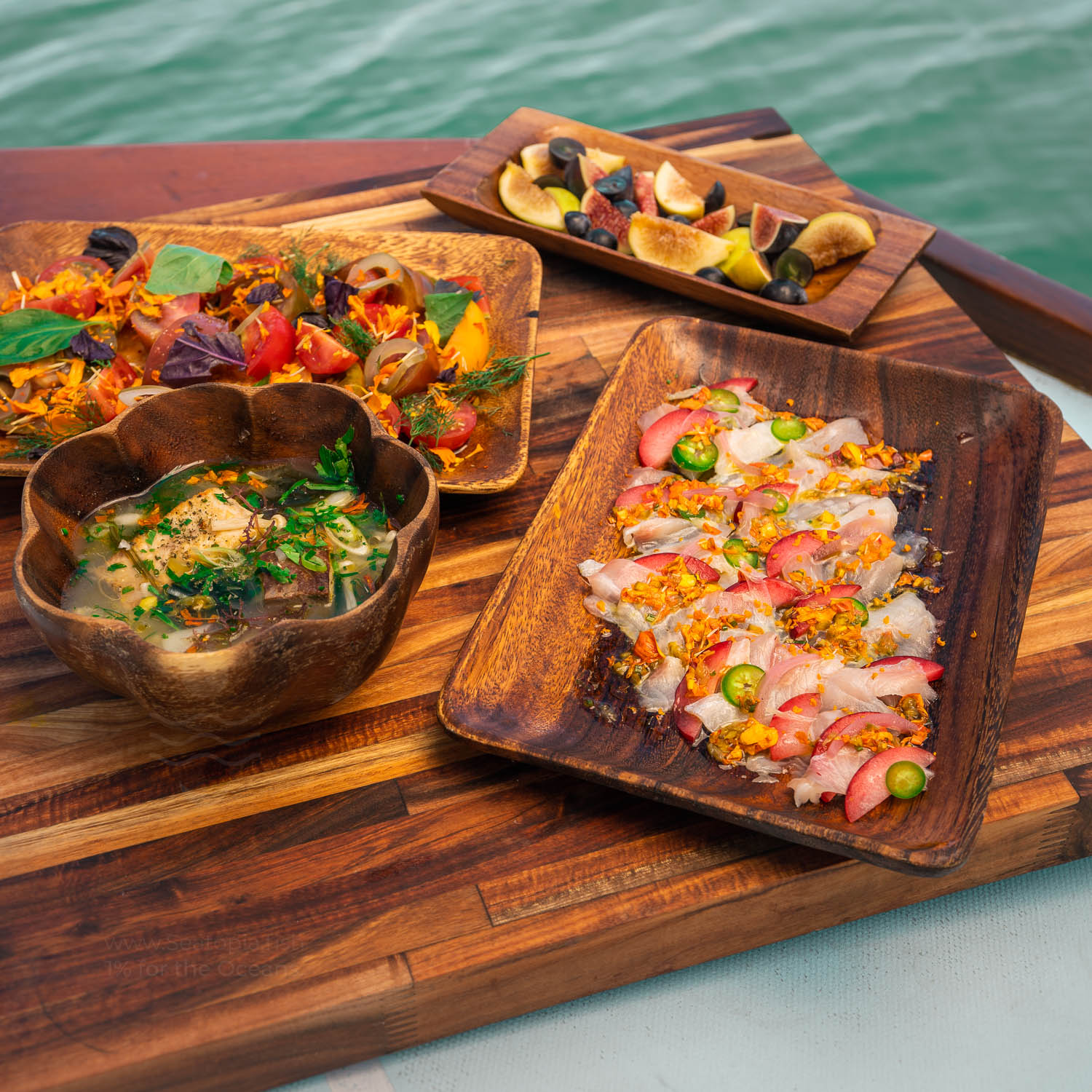
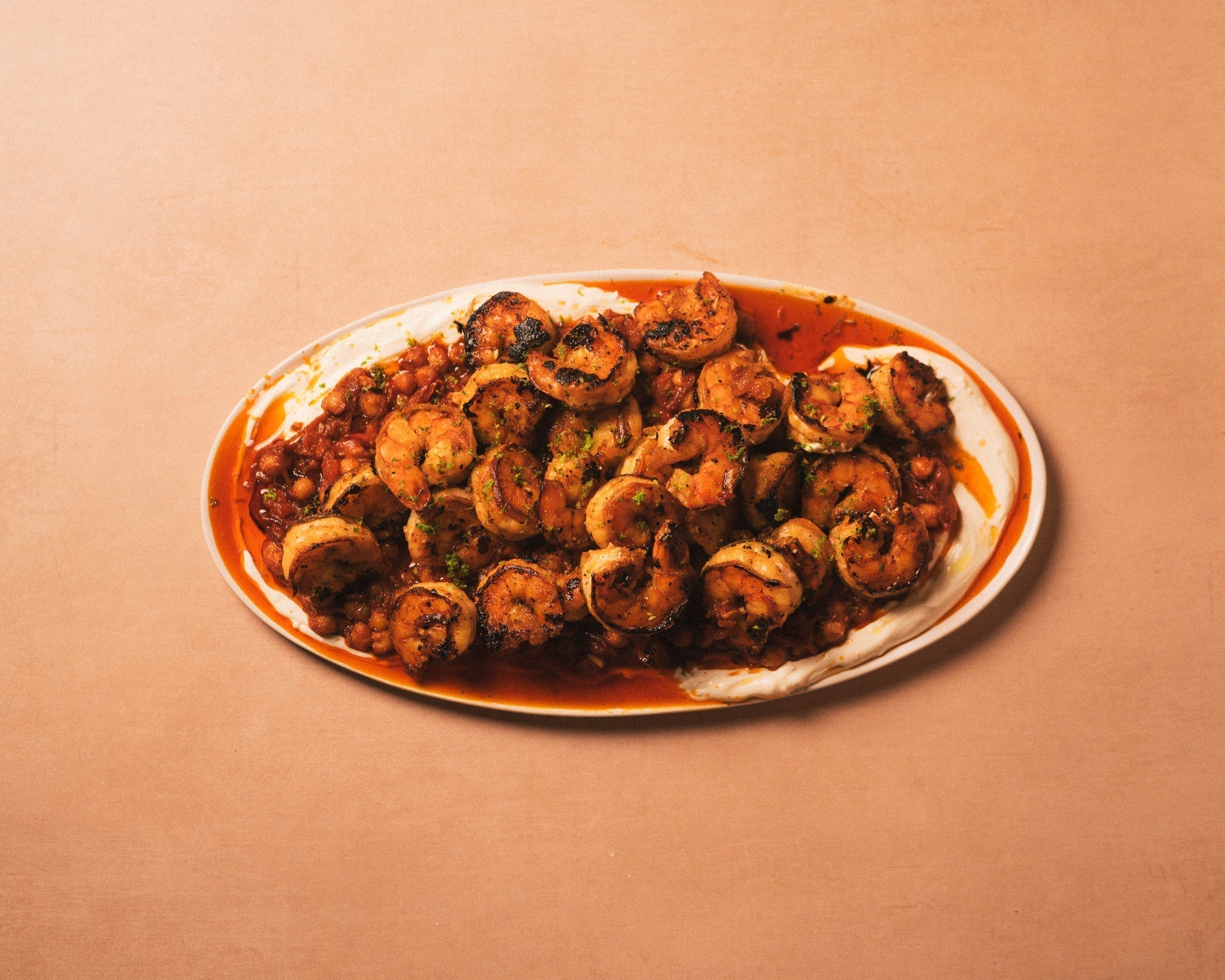
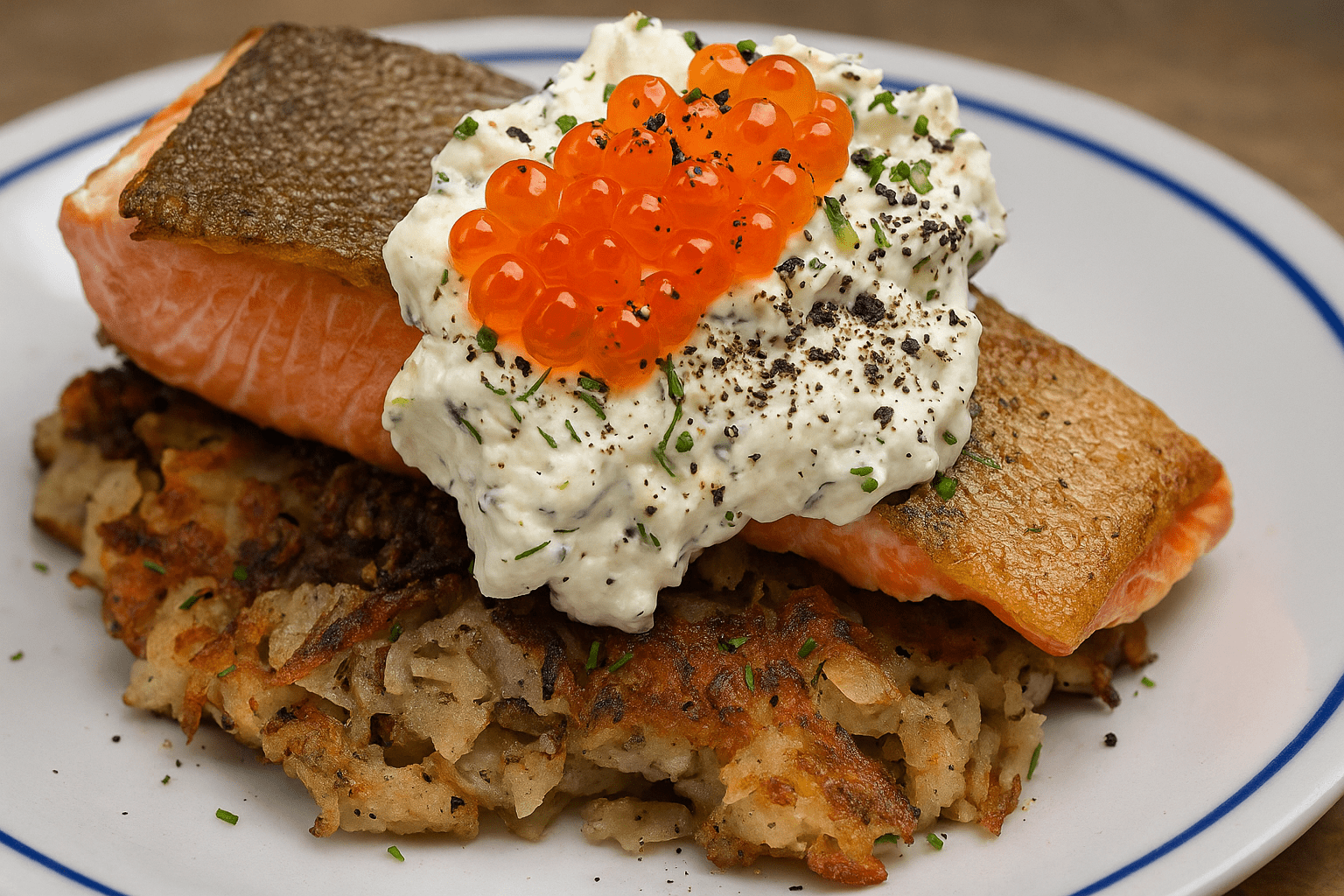
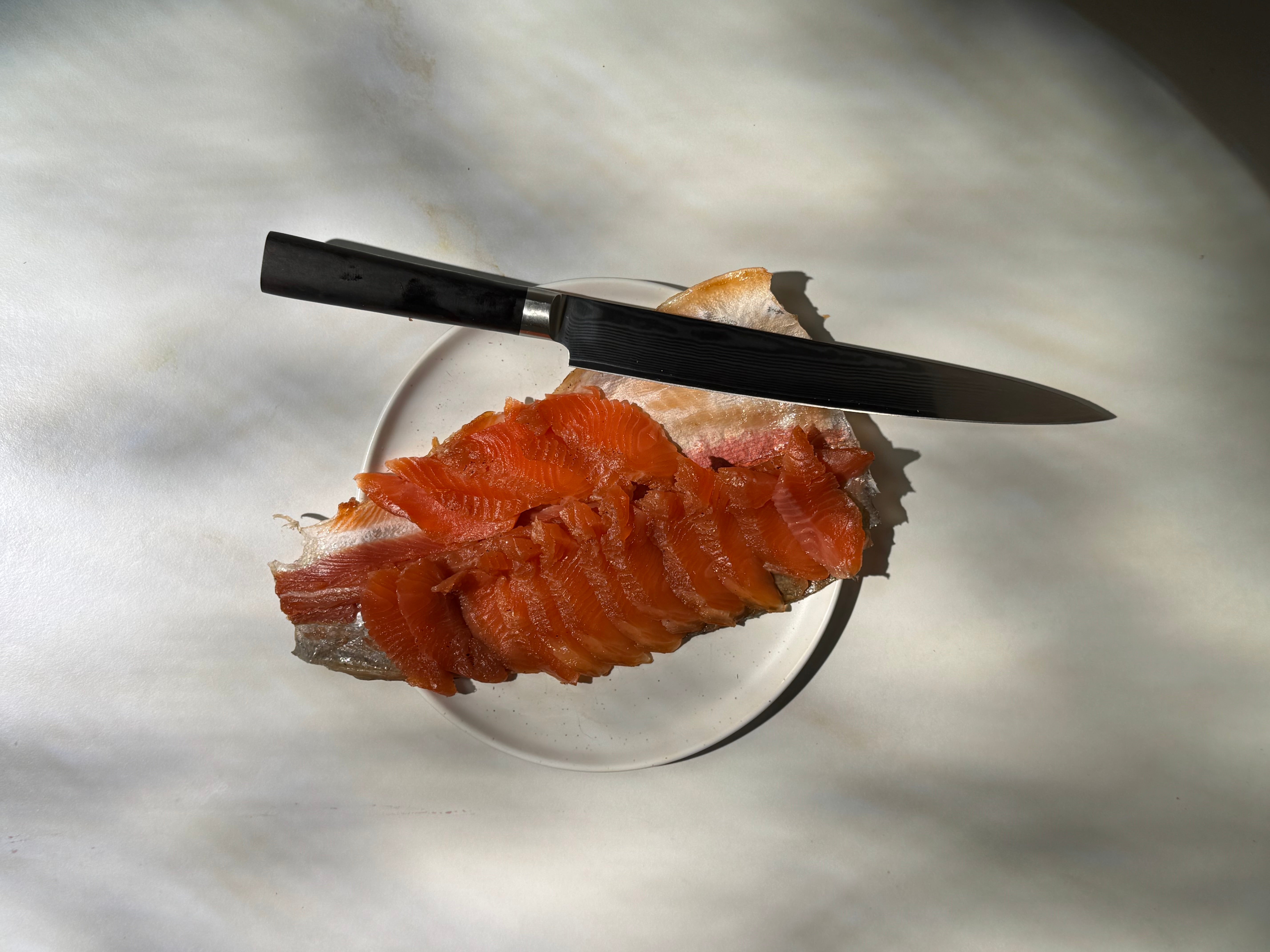
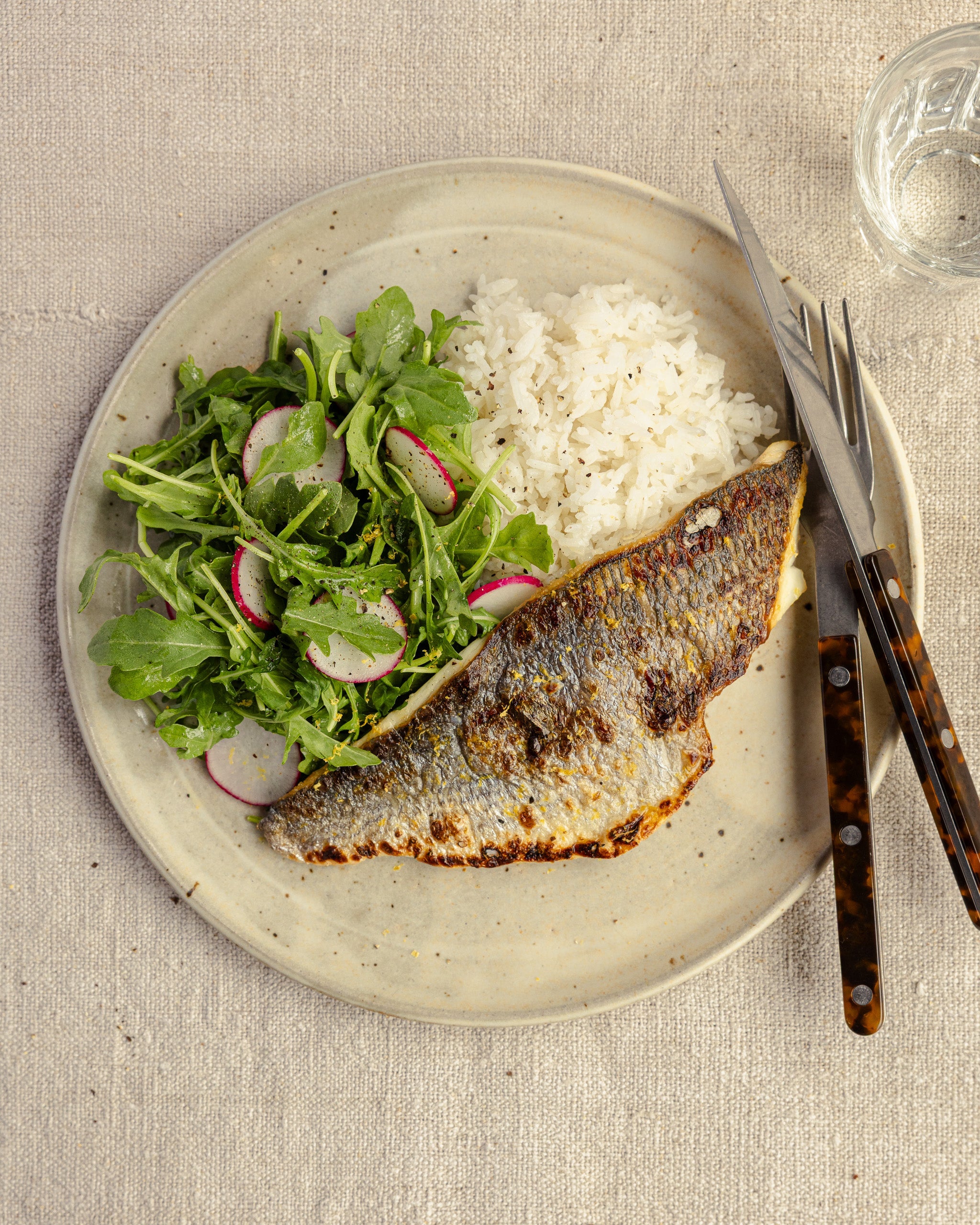
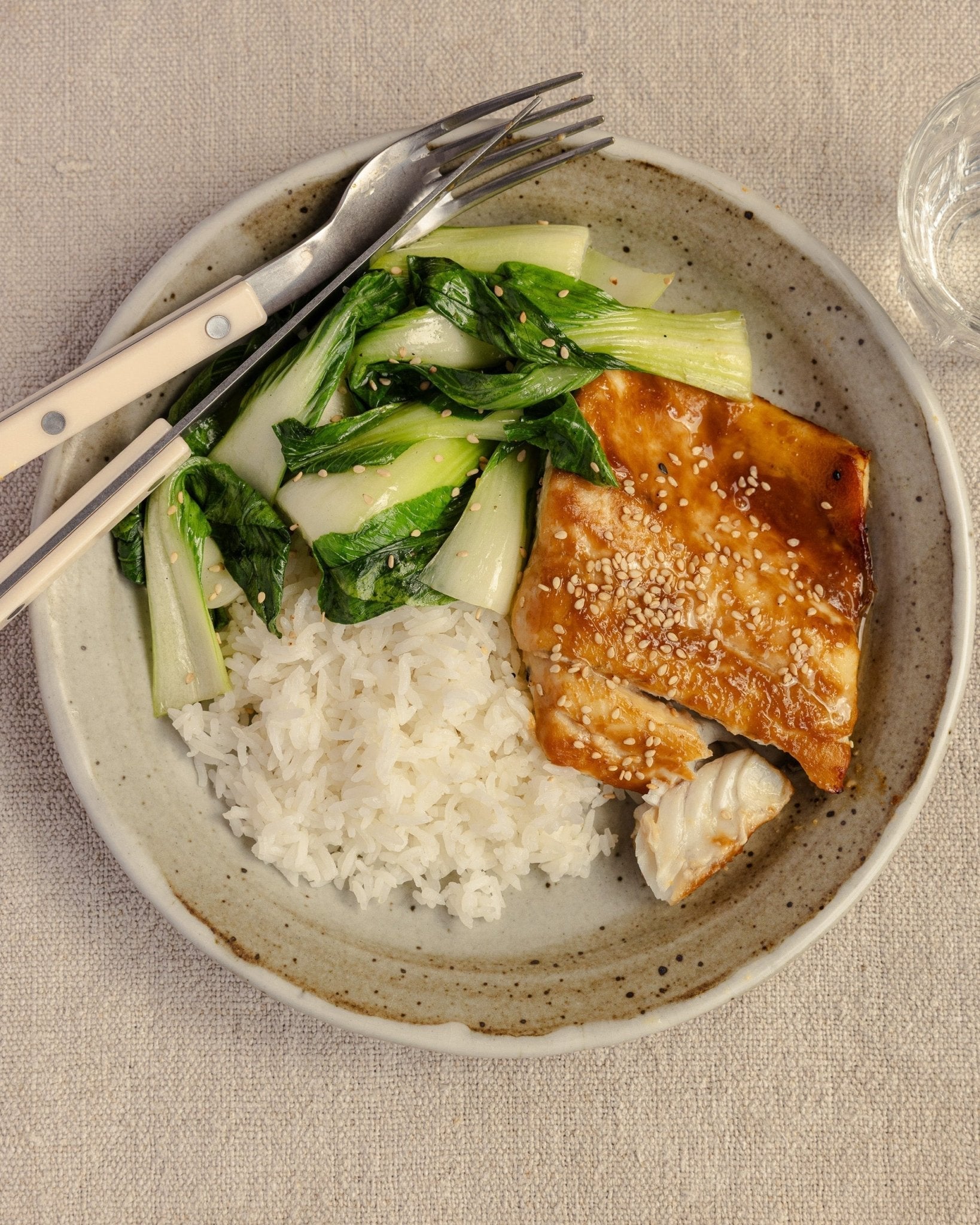
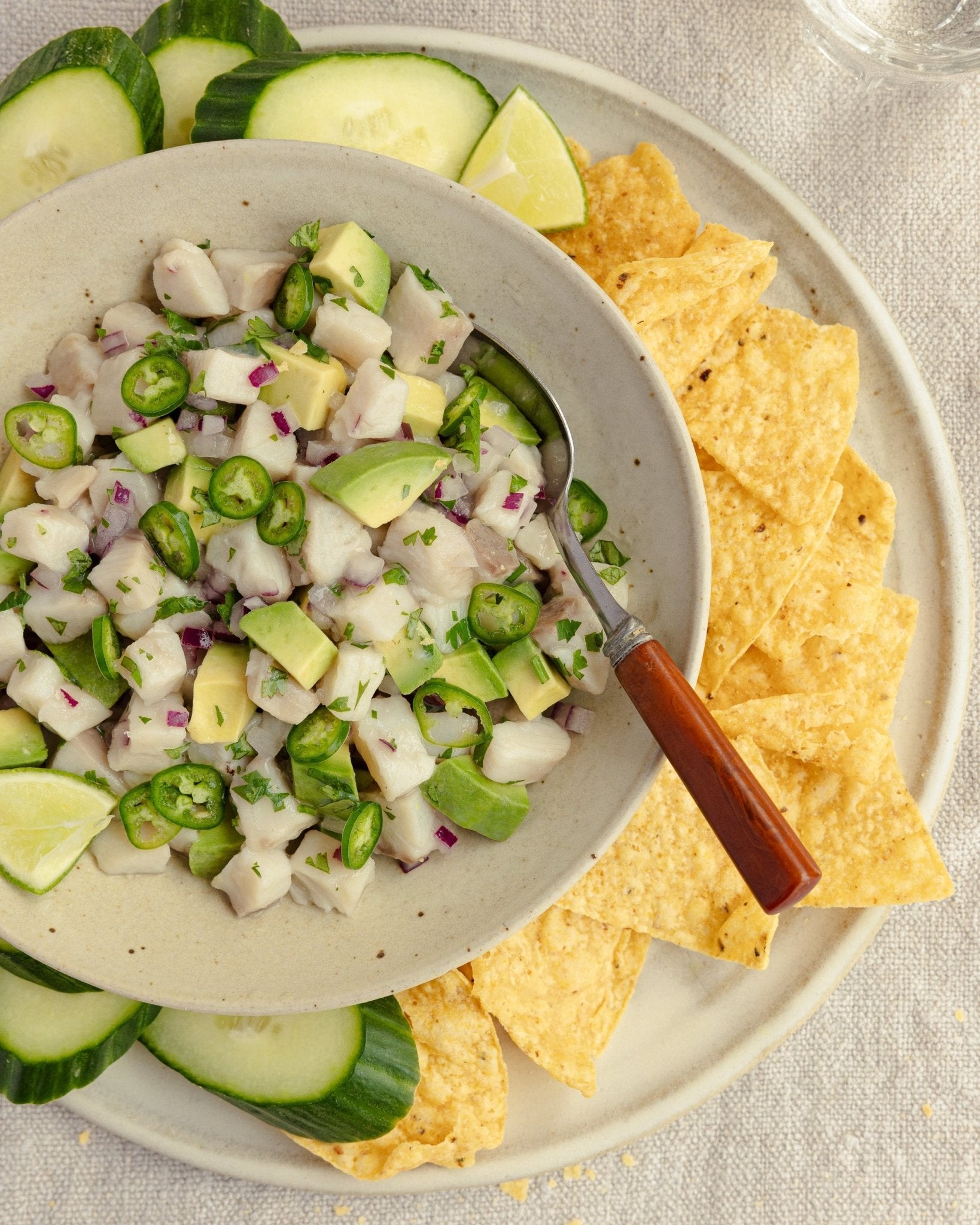
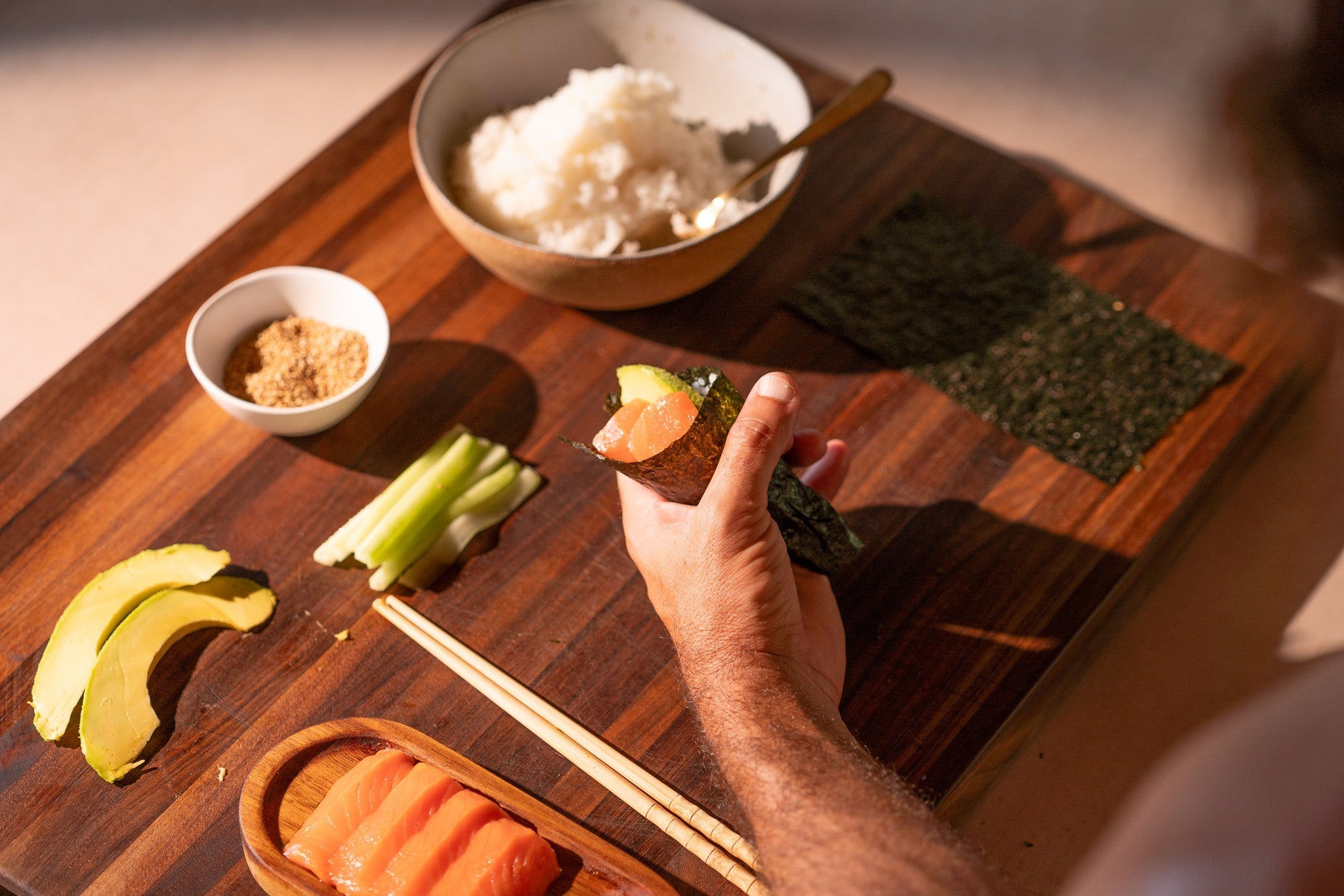
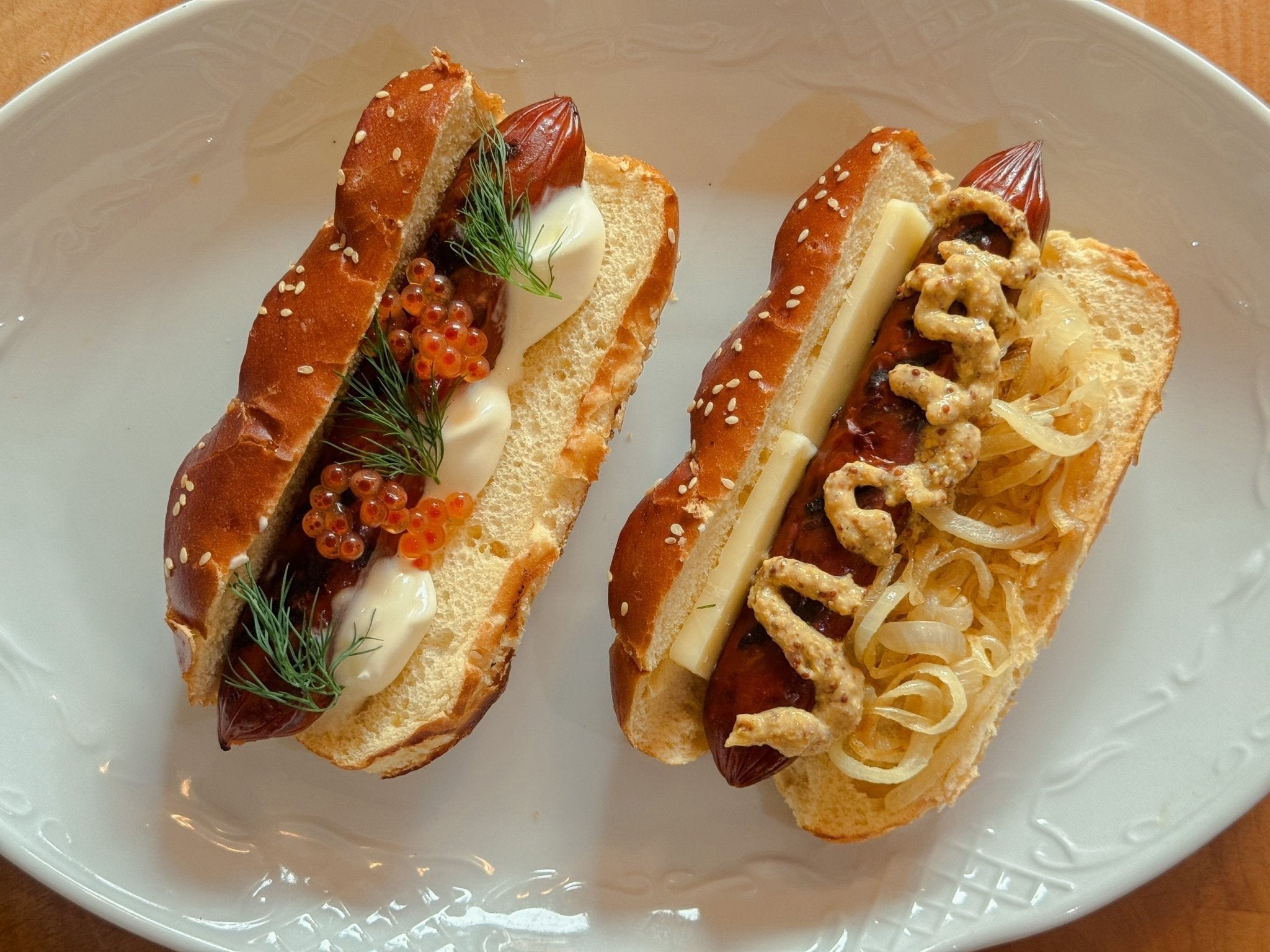
Share:
Black Tiger Shrimp Scampi & Israeli Couscous
Spicy Shrimp Tacos